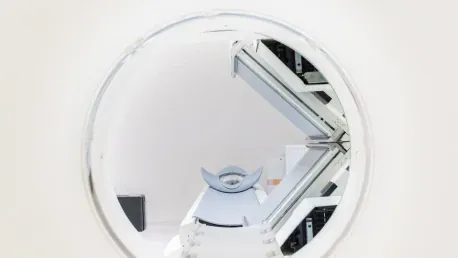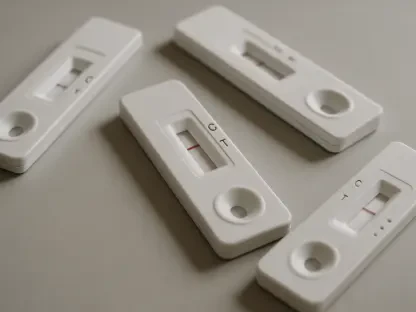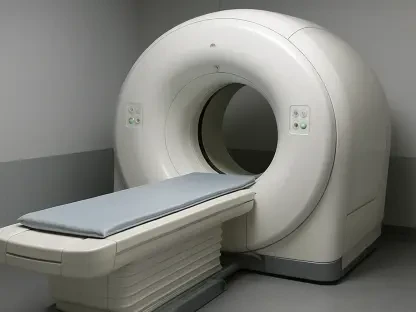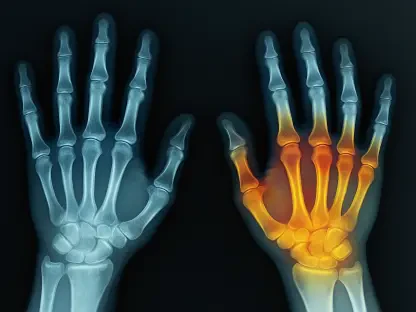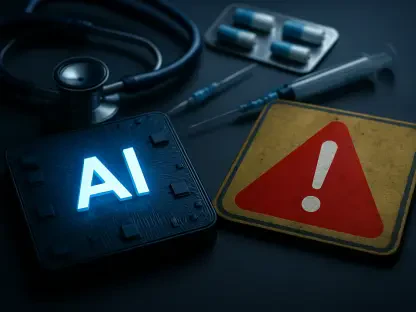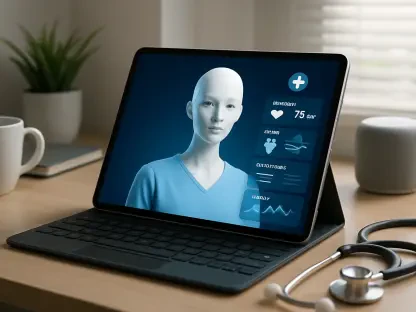MRI technology has been a cornerstone of diagnostic medicine for decades, yet it has long been plagued by challenges such as long scan times and limited accessibility. Imagine if those tedious 45-minute scans could be reduced to just five minutes without compromising image quality. This is not a distant dream but a fast-approaching reality, thanks to the groundbreaking work of Dr. Sadegh Raeisi and his company, Foqus Technologies. By leveraging cutting-edge quantum algorithms and machine learning, Foqus is set to transform the landscape of MRI diagnostics, making it faster, more accessible, and more efficient.
Traditional MRI Technology: Challenges and Limitations
The Complications of Long Scan Times
Traditional MRI machines rely on strong magnetic fields, radio waves, and sophisticated computer algorithms to generate detailed images of body structures. Despite their invaluable role in healthcare, the primary limitation lies in the lengthy scanning process, which can take up to 45 minutes. This not only deters patients with claustrophobia or medical conditions requiring frequent monitoring but also contributes to congestion in medical facilities. Long scan times translate into extended wait periods, exacerbating patient anxiety and discomfort while straining healthcare resources.
The prolonged duration of MRI scans is especially problematic for patients with limited access to medical care, often found in underserved or rural areas. In these communities, the frequency of available MRI slots is constrained, meaning that even a single lengthy scan can create a backlog, delaying diagnoses and treatment. As healthcare systems grapple with increasing demand, the pressure mounts on radiologists and MRI operators, often leading to burnout and potential diagnostic errors.
The Accessibility and Affordability Barrier
Accessibility and affordability stand as major hurdles in the widespread adoption of MRI technology. The expense associated with acquiring and maintaining MRI machines, coupled with the necessity for specialized training to operate them, has historically restricted their availability to well-funded medical institutions. This has relegated MRI imaging to a luxury in underserved regions, depriving many of timely diagnostics and early intervention.
The technological barriers are compounded by socioeconomic factors. Individuals from underrepresented communities or those living in remote areas frequently face significant financial and logistical challenges in accessing MRI services. Even in urban settings, scheduling an MRI can involve prolonged waiting periods, further delaying essential medical care. These disparities highlight the urgent need for advancements that can democratize MRI access, ensuring equitable healthcare for all, regardless of geographical or economic constraints.
Foqus Technologies: A Quantum Leap Forward
Leveraging Quantum Algorithms for Efficient Imaging
Foqus Technologies, under the leadership of Dr. Sadegh Raeisi, is making significant strides in addressing these challenges. The company has developed software that utilizes quantum algorithms to enhance the sensitivity of MRI machines. By extracting quantum entropy and generating stronger signals, the software can achieve high-quality imaging with significantly reduced data collection time. This innovative approach has the potential to slash MRI scan times from the conventional 45 minutes to a mere five minutes, without compromising the diagnostic quality of the images.
The application of quantum algorithms in MRI technology represents a paradigm shift, as it leverages principles of quantum mechanics to process information in ways that classical computers cannot. This advancement allows for more efficient signal acquisition and image reconstruction, resulting in faster and more precise diagnostic capabilities. Consequently, Foqus’s technology stands to revolutionize not only the speed but also the accuracy of MRI diagnostics, paving the way for earlier detection and intervention of diseases.
Enhancing Detection and Reducing Physician Burnout
The implications of Foqus’s innovations extend beyond just reducing scan times. By streamlining the imaging process, the technology can alleviate the workload of healthcare providers, mitigating burnout among MRI operators and radiologists. Shorter scan times mean that more patients can be accommodated within the same timeframe, optimizing resource utilization and improving patient throughput. Additionally, the higher-quality imaging produced by the software can enhance diagnostic accuracy, reducing the need for repeat scans and minimizing the margin for error.
In the context of early disease detection, the ability to generate faster and more detailed images can be a game-changer. Timely and accurate diagnosis is crucial for effective treatment, and Foqus’s technology holds the promise of accelerating this process. For physicians, this translates to more efficient decision-making and better patient outcomes. For patients, it means reduced anxiety and faster access to potentially life-saving interventions. The overall impact on the healthcare system could be profound, with shorter wait times, improved diagnostic capabilities, and enhanced patient care.
From Research to Real-World Application
Collaborations and Pilot Testing
The journey of Foqus Technologies from its conceptual phase to practical application has been marked by strategic collaborations and rigorous testing. Dr. Raeisi’s foundational work at the Institute for Quantum Computing at Waterloo laid the groundwork for Foqus’s innovations. His engagement with leading scientists fostered both high-level scientific research and practical innovation, culminating in the development of the company’s groundbreaking software.
In partnership with the Robarts Research Institute and Waterloo’s Velocity incubator, Foqus undertook pilot testing to validate their technology. This collaborative effort involved extensive feedback from MRI operators and radiologists, ensuring that the software met the practical demands of medical imaging environments. Through the analysis of over 20,000 MRI images, Foqus fine-tuned its algorithms, garnering valuable insights that informed the refinement of their product.
Towards Global Adoption and Advanced Capabilities
Foqus Technologies is now on a trajectory toward global adoption, aiming for FDA approval as the next milestone in their journey. The potential of their technology extends beyond mere speed enhancements; it promises to unveil previously invisible layers of biological information. For instance, metabolites linked to cancer metabolism, which are traditionally challenging to detect through MRI, could become accessible with Foqus’s advanced imaging capabilities. This could elevate the diagnostic potential of MRI scans to unprecedented levels, offering deeper insights into a wide range of medical conditions.
As Foqus continues to advance its technology and expand its reach, the implications for global healthcare are enormous. By making MRI scans faster, more accessible, and more affordable, Foqus could democratize access to high-quality medical imaging. This transformation would particularly benefit underserved populations, ensuring that timely and accurate diagnostics are not a privilege but a universal standard. The broader adoption of this technology could usher in a new era of precision medicine, with enhanced diagnostic capabilities and improved patient outcomes worldwide.
The Future of MRI Diagnostics
Transforming Healthcare with Quantum and AI Innovations
The innovative work of Dr. Raeisi and Foqus Technologies is poised to bring about a seismic shift in MRI diagnostics. By harnessing the power of quantum algorithms and machine learning, they are not only addressing the longstanding challenges of scan times and accessibility but also unlocking new possibilities in medical imaging. The potential benefits are manifold: faster scans, higher-quality images, more efficient use of healthcare resources, and improved patient care. The ripple effect of these advancements could transform healthcare systems globally, making high-quality diagnostics more accessible to all.
Foqus’s pioneering approach exemplifies the fusion of cutting-edge science with practical application, heralding a new era in medical technology. As the company moves toward broader implementation and regulatory approval, the transformative impact on healthcare becomes more tangible. The promise of reduced scan times and enhanced imaging capabilities is no longer a distant goal but an imminent reality, poised to elevate the standard of care across the board.
Preparing for a New Standard in Medical Imaging
MRI technology has been an essential part of diagnostic medicine for many years, but it has always faced issues like lengthy scan times and limited accessibility. Picture a situation where a lengthy 45-minute MRI scan is shortened to just five minutes without losing any image quality. This isn’t some distant fantasy; it’s an imminent reality owing to the pioneering efforts of Dr. Sadegh Raeisi and his company, Foqus Technologies. Utilizing advanced quantum algorithms and machine learning, Foqus is revolutionizing MRI diagnostics, making it faster, more accessible, and more efficient. By drastically cutting scan times and enhancing the overall process, this innovation has the potential to expand the reach of MRI technology to more people, improve patient comfort, and increase the speed of medical diagnoses. Dr. Raeisi’s work will profoundly impact both patients and healthcare professionals, transforming the efficiency and effectiveness of MRIs around the world. This groundbreaking approach will soon reshape MRI diagnostics for the better.
